Definition
Nephrotic syndrome is the state that the kidney excretes large amounts of protein in the urine. It is usually caused due to the damage in the cluster of blood vessels in the kidney that filters waste materials from the blood. It causes swelling (edema) in ankles, legs and feet. If left untreated, this can lead to problems with breathing, eating and infections.
Nephrotic syndrome includes the following:
Proteinuria- Urine contains large amount of protein
Hyperlipidemia- Fat and cholesterol level in the blood is higher than normal level
Edema, or Swelling, commonly in the legs, feet or ankles and not much in the hands or face
Hypoalbuminia- The level of albumin in the blood is low
Nephrotic syndrome (low protein level in blood)
History
1290 AD- Dropsy is an ancient word meaning oedema
1827- That Richard Bright (1789–1858) was able to put together the triad of generalized edema, proteinuria, and kidney disease, as presenting features of this disease
1829- Christison confirmed the level of protein findings in blood
1830- Nephrotic syndrome of profound albuminuria, hypoalbuminemia, and edema, resulting from diseased kidneys was established. John Bostock, a colleague of Bright, also noted that when protein in the urine was highest, it was lowest in the serum
1872- Klebs coined the term “glomerulonephritis” to describe the exudative glomerular changes seen under the microscope.
1905- The term “nephrosis” was coined by Müller to describe all “non-inflammatory” diseases of the kidney as a substitute for parenchymatous nephritis, contrasting it with exudative and inflammatory disease, which would retain the name nephritis.
Epidemiology
The children’s with nephrotic syndrome have done with biopsy study shows same types of histology in India and Turkey, compared with what one would expect in Western countries. Adults from Pakistani and western countries have a similar spectrum of histology’s of kidney biopsies.
In Africa and Middle East part (eg. Egypt), glomerular disease might a chance to be connected with urogenital schistosomal contamination. However, it is called as a tropical nephrotic syndrome starting with parasitic illnesses, for example; schistosomiasis or malaria might not make a valid substance.
The connection between nephrotic syndrome and quartan malaria is not well established Indeed, Pakasa and Sumaili call attention to the apparent decline of parasite-associated nephrotic syndrome in the Congo. It is possible that the perceived association between nephrotic syndrome and parasitic infections was coincidental, as supported by the ongoing and probably increasing occurrence of chronic kidney disease in the Congo.
Classification
Nephrotic syndrome can be primary, being a disease specific to the kidneys, or it can be secondary, being a renal manifestation of a systemic general illness. In all cases, injury to glomeruli is an essential feature. Kidney diseases that affect tubules and interstitium, such as interstitial nephritis, will not cause nephrotic syndrome.
Primary causes of nephrotic syndrome include the following, in approximate order of frequency:
- Minimal-change nephropathy
- Focal glomerulosclerosis
- Membranous nephropathy
- Hereditary nephropathies
Secondary causes include the following, again in order of approximate frequency:
- Diabetes mellitus
- Lupus erythematosus
- Viral infections (e.g., hepatitis B, hepatitis C, human immunodeficiency virus [HIV] )
- Amyloidosis and paraproteinemias
- Preeclampsia
- Allo-antibodies from enzyme replacement therapy
Risk factors of nephrotic syndrome
Risk factors include:
Medical conditions that can damage your kidneys: The diseases that raise the risk of emerging nephrotic syndrome, such as lupus, diabetes, amyloidosis, kidney diseases and minimal change disease.
Certain medications: The medications such as nonsteroidal anti-inflammatory drugs and drugs used to fight infections can cause nephrotic syndrome.
Certain infections: Infections such as HIV, hepatitis B, hepatitis C and Malaria cause the risk of nephrotic syndrome.
Causes
- Nephrotic syndrome is caused by the diseases that affect the kidney, diseases such as focal segmental glomerulosclerosis (FSGS) or membranous nephropathy. Kidney which is affected only by diseases is called primary causes of nephrotic syndrome. The main target of this diseases is glomeruli the reason is not fully understood.
- In FSGS, the common primary cause of nephrotic syndrome is scar tissue forms in the part of glomeruli. Immune molecules form harmful deposits in the glomeruli in membrane nephropathy.
- The systemic diseases are also caused nephrotic syndrome. Diseases such as lupus or diabetes will affects all over the body parts. The systemic diseases that affect kidney are called secondary cause of nephrotic syndrome. Mostly 50% nephrotic syndrome effects in adults have secondary causes of diabetes as most common.
Symptoms of nephrotic syndrome
In addition to proteinuria, hyperlipidemia, edema, and hypoalbumina, people with this syndrome may experience
- Weight gain
- Fatigue
- Foamy urine
- Loss of appetite
Subcutaneous pitting Edema
What are the complications of nephrotic syndrome?
Nephrotic syndrome reduces your body protein level in blood through urine. Proteins do many functions in your body. When the protein level gets reduced, then your body starts to create other problems such as blood clots and infections. Other complications such as:
- Anemia
- Heart disease
- High blood pressure
- Fluid buildup
- Acute kidney injury
- Kidney failure /ESRD
Diagnosis and test
Tests and diagnosis includes:
- Urine tests: By analysing urine abnormalities can be identified, such as an abundant amount of protein. Urine samples are collected over 24 hours for an accurate measure of the protein in your urine.
- Blood tests: Blood test results show low level of protein specifically albumin (hypoalbuminemia). Loss of albumin is often related to the increase of blood cholesterol and blood triglycerides. To measure overall kidney function, serum creatinine and blood urea also measured.
- Removing a sample of kidney tissue for testing: Doctor may recommend kidney biopsy for testing kidney tissue by removing a small sample from the kidney. It is done by inserting special needle into your kidney and tissue is collected and sent to a lab for testing.
Treatment and medications
There is no cure, but there are treatments and medications that help you to manage the nephrotic condition include:
Blood pressure medications: Medications includes such as benazepril (Lotensin), captopril (Capoten) and enalapril (Vasotec). Drugs called angiotensin, which converts the enzyme inhibitor that reduce blood pressure and also reduce the amount of protein released in urine. One more group of drugs that functions as same way is called angiotensin II receptor blockers and includes losartan (Cozaar) and valsartan (Diovan).
Water pills (Diuretics): Water pills control swelling by increase your kidney fluid output. Diuretic medications include furosemide (Lasix) and spironolactone (Aldactone).
Cholesterol-reducing medications: Medications that reduce cholesterol levels called stains. Yet it is unclear whether or not cholesterol-lowering medications can specifically improve the outcomes of people with nephrotic syndrome, such as avoiding heart attacks or decreasing the risk of early death. Statins include atorvastatin (Lipitor), fluvastatin (Lescol), lovastatin (Altoprev, Mevacor), pravastatin (Pravachol), rosuvastatin (Crestor) and simvastatin (Zocor).
Blood thinners: To reduce the risk of blood clotting anticoagulants can be used to reduce clots. Anticoagulants such as heparin or warfarin (Coumadin).
Immune system-suppressing medications: Corticosteroids can be used to control the immune system and also it may decrease the inflammation that accompanies certain kidney disorders, such as minimal change disease.
Prevention of nephrotic syndrome
The nephrotic disease can be prevented by avoiding situations and only way that is to reduce the diseases that cause it.
- Blood pressure should be maintained less than 125/75mmHg by using drugs called angiotensin-converting enzyme inhibitors, diest and exercises
- Diabetics patient should have controlled blood glucose level
- Quit using tobacco products or smoking
- Avoid alcoholic beverages that increase urine output and increase dehydration.
- Don’t use medicines that harm the kidney
- Stop working outdoors or exercising at the first sign of dizziness, lightheadness, or fatigue.
- Avoid X-ray tests that use contrast material.
- Prevent heart disease and stroke by lifestyle changes-eating a low-fat diet, quitting smoking, and doing regular physical activities.
 Diseases Treatments Dictionary This is complete solution to read all diseases treatments Which covers Prevention, Causes, Symptoms, Medical Terms, Drugs, Prescription, Natural Remedies with cures and Treatments. Most of the common diseases were listed in names, split with categories.
Diseases Treatments Dictionary This is complete solution to read all diseases treatments Which covers Prevention, Causes, Symptoms, Medical Terms, Drugs, Prescription, Natural Remedies with cures and Treatments. Most of the common diseases were listed in names, split with categories.
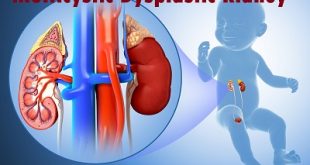
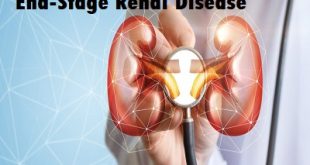
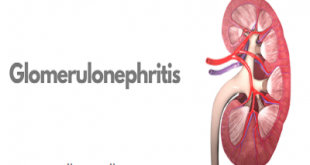
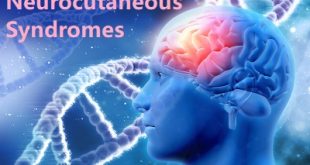
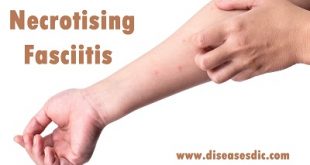
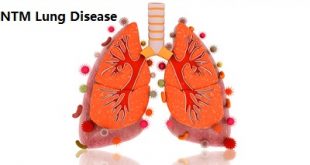
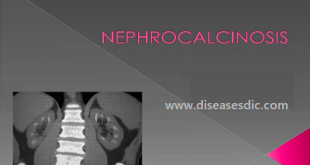

i love that book
Am very opportune d to have all these information. The data are so amazing.keep it up.thanks
iIts the best book on play store, I’ve many books like this but this one is the best
this information is very significant and reliable, thanks a lot, and I hope there will be more advancement made on it ,job well done.
is there any way out through integrated complimentary alternative medicines.please do suggest cam medicine too.thanks
Thank you, that is a short book but so detailed and educative.
I am very thankful &reliable to have such a great &knowledgeable information .
thanks a lot .
it is a good information about kidney disease and also definition and symptoms and treatment of the most important thing is that the new
wat a wonder…a very good and helpful book indeed
It’s a good and helpful material… l love it!
I love it!
this book is very good not quite long my husband died of this disease but now I know a little bit about it thank you for such journal
That is a best way of study through phone I have got to know wide about kidney problems
It is very informative and helpful for people to care the patient.
I’ve been educated on diseases that I had no or little information about. Thank you! I think you must be commended for that.
i never see this type of superb app earlier. tnx you sir very much. it is too helpfull
i have protein in urea and creatinine level rises up 8mg/dl now which medicin is best for me. i have no sewelling but now i have litte vometing going now what can i do transplant is better for me or treatment plz give me answer.
If the condition goes serious then you can look for transplant. for the level 8gm/dl u cant get cure by taking medications. Better to consult a doctor.
it is very useful licture and we are facing everyday such diseases here i hope will get such more lictures. thank you admin.
I love this book its very impressive and helpful, thanks a lot love u
l need kidney treatment and treatment and for blood pressure
consult a nephrologist to get treatment.
Sir how we can increase the size of kidney, and which type of food we can eat. Sir the kidney size of my father has been decrease so plz help us.
Consult a nephrology specialist.
sir,I am nephrolgist patient because my protein comes in 24 urine what I do plz tell me
Some of the diets will reduce the protein level in urine such as soyprotien, flaxseed, whole grains, whole fruits and reduce sodium intake.
Pls my 5years old son is suffering from nephrotic syndrome.,any permanent solution for him.?
please consult a doctor to get the permanent solution
Is this the same as Schistomiasis?
no, it is different from that.
இந்த நோய்க்கு நிரந்தர தீர்வு உள்ளதா?
There is no cure for nephrotic syndrome, but there are treatments and medications that help you to manage the nephrotic condition. please see in the post for managing the problem.
Tnk u very much….. this is amazing
Tnk u very much……… this is amazing
so fantastic
please, is it the same as Kidney stone? if No, what’s the medical name and how can i read more about it on this app? thanks.
It’s not the same as the kidney stone. It is the kidney excretes large amounts of protein in the urine. For details information kindly read in the app.
My right kidney is sitting on my pelvic, so when I sit my ankle swells!!
how can remove it?
It can be removed by the medications.
my.son is CKD on dialysis but is always diarrhoea
what is theprobrem
?
Please consult a doctor to diagnose the problem.